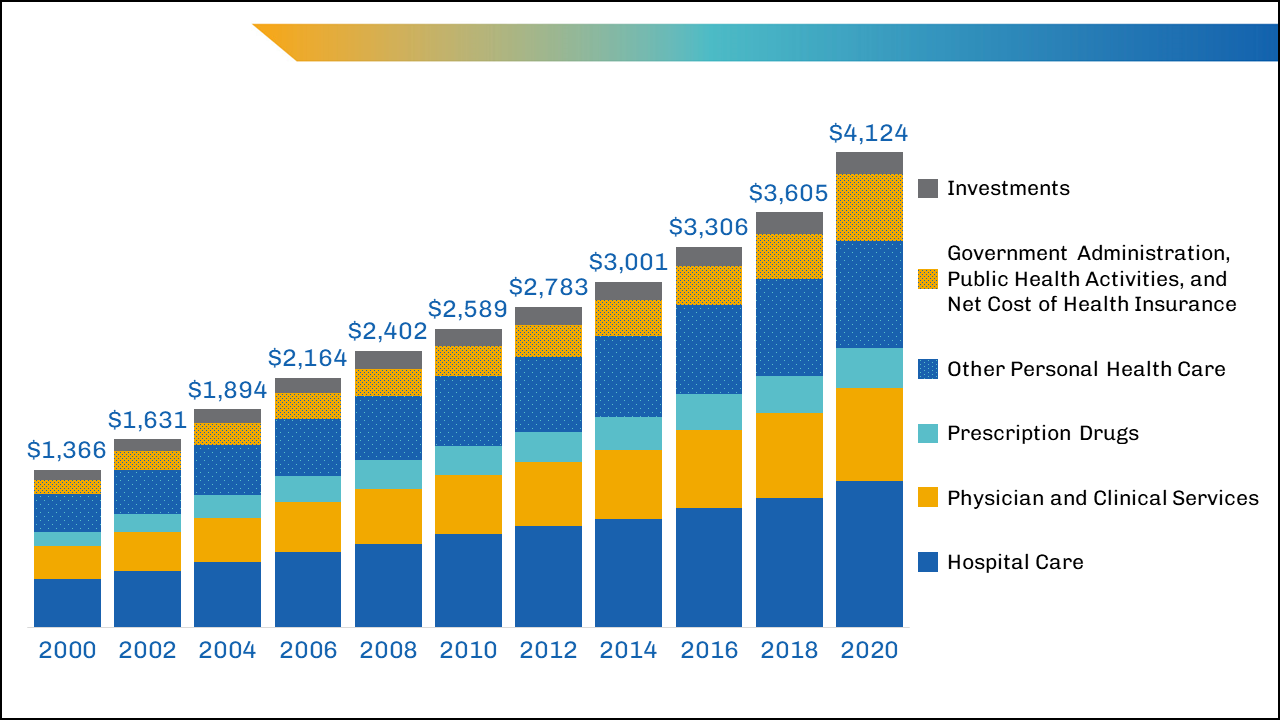The Value of Healthcare RCM in Enhancing Capital and Effectiveness
The Value of Healthcare RCM in Enhancing Capital and Effectiveness
Blog Article
Unveiling the Benefits of Medical Care RCM in Improving Performance and Precision in Profits Cycle Monitoring
In the rapidly evolving medical care landscape, the value of Profits Cycle Administration (RCM) can not be overstated (Healthcare RCM). As doctor pursue precision and performance, RCM becomes an essential tool in streamlining procedures, minimizing mistakes, and boosting economic results. By integrating with Electronic Wellness Records and leveraging innovative technologies, RCM not only maximizes management jobs yet additionally enriches the claims processing experience. This improvement holds the potential to redefine economic efficiency and individual count on. Yet, what are the particular mechanisms driving these enhancements, and exactly how can they be taken advantage of to their full potential?
Enhancing Administrative Jobs

Additionally, the combination of electronic wellness documents (EHR) with RCM systems helps with real-time data gain access to and sharing, enabling health care professionals to make educated decisions promptly. This interconnectedness not only boosts interaction in between medical and administrative teams yet likewise improves individual fulfillment by decreasing waiting times and billing disparities - Healthcare RCM. Additionally, structured administrative procedures allow for far better conformity with regulative requirements, mitigating threats associated with audits and charges
Inevitably, the focus on refining management jobs in RCM leads to cost financial savings and enhanced monetary performance. By buying automation and optimizing operations, health care organizations can attain a much more sustainable revenue cycle, guaranteeing lasting stability and the ability to adapt to advancing market demands.
Enhancing Insurance Claims Handling
Exactly how can medical care organizations boost the effectiveness of their claims handling? The integration of advanced Revenue Cycle Administration (RCM) systems supplies a robust solution. By harnessing automation and innovative analytics, RCM systems improve the complex and frequently troublesome cases refining tasks. Automation minimizes hand-operated information access mistakes, ensures compliance with the most up to date invoicing codes, and speeds up the general cases lifecycle from entry to reimbursement.
Additionally, real-time analytics play a pivotal role in enhancing claims refining effectiveness. These analytics tools provide understandings right into traffic jams and possible rejections, permitting doctor to resolve concerns proactively. Anticipating analytics can anticipate patterns in insurance claim rejections, allowing preemptive steps to alleviate them, therefore reducing the time considered cases to be processed and accepted.
Furthermore, the fostering of electronic wellness records (EHR) integrated with RCM systems makes certain smooth data circulation, reducing redundancies and raising the precision of details submitted in cases. A regular responses loop facilitated by RCM systems better fine-tunes the procedure, cultivating constant renovation.
Eventually, by leveraging technology-driven remedies in claims processing, medical care companies can enhance operational effectiveness, enhance capital, and provide a smoother experience for clients and team alike.
Reducing Monetary Mistakes
Accurate monetary monitoring is critical in health care, where reducing monetary mistakes can considerably affect operational success. Economic mistakes, whether because of inaccurate billing, coding errors, or mismanagement of patient accounts, can cause substantial earnings loss and strained relationships with patients and payers. Attending to these mistakes is critical to preserve a healthcare company's monetary health and boost its track record.
Healthcare Income Cycle Management (RCM) plays a pivotal duty in lessening such errors with structured processes. By implementing standard treatments for billing, coding, and collections, health care suppliers can make certain that economic deals are managed with precision. Comprehensive training for team on current coding guidelines and invoicing methods likewise lowers the probability of mistakes, making certain insurance claims are properly refined and compensated.

Additionally, comprehensive audits and routine economic reviews within the RCM structure permit the early detection and modification of disparities. Ensuring accuracy in client data entrance and confirmation better mitigates errors, as this is commonly a key resource of errors. By concentrating on these strategic locations, healthcare organizations can reduce financial errors, thus securing their earnings streams and boosting total functional performance.
Leveraging Advanced Technologies
In today's quickly progressing health care landscape, leveraging sophisticated modern technologies is crucial for maximizing Income Cycle Administration (RCM) processes. By integrating cutting-edge solutions such as artificial knowledge (AI), artificial intelligence (ML), and robotic process automation (RPA), healthcare suppliers can dramatically boost the effectiveness and accuracy of their RCM operations. These modern technologies aid in enhancing repeated tasks, lowering hands-on errors, and enabling quicker processing of cases.

Furthermore, the integration of blockchain technology enhances data safety and security Healthcare RCM and transparency within RCM (Healthcare RCM). It makes certain that delicate details is shielded while keeping an unalterable record of deals. This is important for developing count on with clients and stakeholders
Boosting Financial Performance
Building on the effectiveness obtained with innovative technologies, medical care service providers can considerably increase their economic performance by fine-tuning their Earnings Cycle Administration (RCM) approaches. By optimizing invoicing procedures, minimizing claim rejections, and enhancing money circulation, healthcare establishments can accomplish better economic stability.
In addition, data analytics within RCM systems provide beneficial insights right into monetary trends and functional bottlenecks. By leveraging these understandings, doctor can make educated choices to boost economic end results, such as adjusting billing methods or renegotiating payer contracts. Improved accuracy in coding and paperwork better lowers case denials and audits, cultivating a smooth revenue cycle.
Additionally, patient engagement tools integrated within RCM platforms enhance patient fulfillment by supplying clear invoicing info and versatile repayment choices. This transparency not only improves patient-provider relationships but also encourages prompt settlements, lowering impressive balance dues.
Final Thought
Health Care Income Cycle Management considerably optimizes efficiency and precision by simplifying management tasks and improving insurance claims processing. Through the decrease of monetary errors and the assimilation of sophisticated innovations such as AI and predictive analytics, RCM promotes compliance with billing codes and gives useful understandings into economic patterns. This systematic technique not only decreases prospective claim rejections but also improves financial efficiency, consequently fostering trust and openness with clients and stakeholders within the medical care system.
As health care companies strive for precision and efficiency, RCM arises as a pivotal device in streamlining procedures, reducing mistakes, and enhancing economic end results.Streamlining administrative jobs in healthcare earnings cycle management (RCM) supplies significant benefits by boosting operational effectiveness and lowering the their website burden on personnel.Medical Care Profits Cycle Monitoring (RCM) plays a critical function in decreasing such errors with structured procedures.In today's swiftly evolving health care landscape, leveraging sophisticated modern technologies is vital for enhancing Earnings Cycle Management (RCM) processes.Structure on the efficiencies acquired with sophisticated modern technologies, medical care companies can considerably enhance their economic performance by refining their Revenue Cycle Management (RCM) techniques.
Report this page